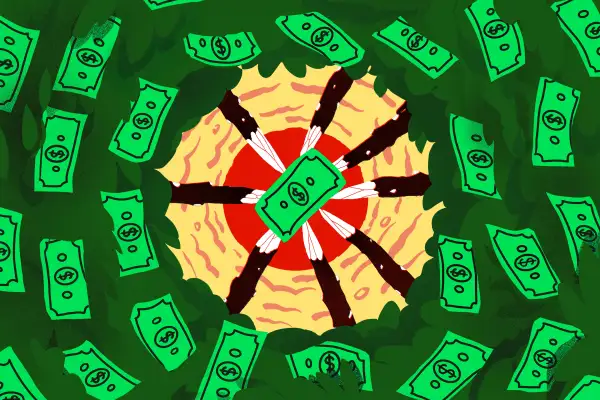Need Cash Fast? Payday Loans Offer a Solution but Should Be Your Last Resort

The idea of accessing your paycheck before it actually hits your bank account is an appealing one, especially in this economy. Unfortunately, there may be a catch.
Payday loans — which are small, unsecured loans that don't require collateral and have short terms — are a popular way for people to access cash fast. But in practice they end up costing borrowers a lot, so you need to know what you're getting into.
Todd Christensen, education manager with the nonprofit debt relief agency Money Fit by DRS, explains that payday lending is built around the concept of providing you just enough cash to get you to your next payday, which theoretically is within two weeks or so.
As such, the loans are very convenient — companies “typically organize their offices more like a fast food restaurant than a lender,” with menu-like posters that lay out fees and requirements.
And just like at McDonald’s, there’s a quick turnaround time.
“Loans are fast, meaning you can get the money in your account within a matter of an hour or less,” Christensen says. “Compare that to banks and credit unions that will take days, if not weeks, to approve your personal loan, especially if you have no credit rating or a poor credit rating.”
The problem with payday loans is that they actually come at a high cost. Some lenders will advertise their fees as percentage rates — but since those rates are based on the (short) term of the loan, they tend to be a lot worse than they sound. For example, Christensen says, “a two-week 15% fee equates to a 390% APR (15% x 26 two-week terms per year).”
That’s not good, especially when you consider that the borrowers who seek out these loans run the risk of not being able to afford the repayment.
“The loans are incredibly expensive and cause a whole host of financial consequences and harms,” says Lisa Stifler, director of state policy at the Center for Responsible Lending. “If you’re already struggling to pay your bills on a monthly basis, and then you have this loan on top of that due in full within a short period of time ... it ends up digging people into more debt.”
Basically, it’s a trap. Research shows some 80% of payday loans get rolled over or renewed within two weeks. Active borrowers tend to take out nine or more loans a year.
Here’s an example of how things can spiral out of control so quickly. Say you take out a payday loan for $200 with a $30 fee. But when the end of the two-week period comes around, you can’t pay it back. So you roll it over. Now you're on the hook for the $200 you borrowed, the first $30 and an additional $30 fee. It only takes a couple of months for you to owe more in interest/fees than you ever got in credit.
Making matters worse is the fact that regulation is spotty at best. In fact, the Consumer Financial Protection Bureau last month rescinded a 2017 rule requiring lenders to verify borrowers’ income and expenses before giving them a loan. Stifler says the decision to revoke that “common-sense principle” means “lenders will be able to continue operating business as usual.”
Online lenders and apps are under scrutiny now, too: In August 2019, officials in 11 states plus Puerto Rico announced an investigation into the payroll advance industry. They’re looking into whether tipping mechanisms, monthly memberships and other fees “are usurious and harming consumers.”
Bottom line: Payday loans can cross into predatory territory if you're not careful. Be on the lookout for red-flag phrases like “get money fast,” “same-day transfer” and “no credit check” in ads, and be smart about borrowing money.
Ideally you would never be in a cash crunch because you'd have an emergency fund. But if you do find yourself in that situation, Christensen recommends:
- asking a friend for a small, short-term loan and offer to pay interest
- getting a cash advance using my credit card
- considering a personal loan through an online peer-to-peer platform, a bank or a credit union
Everybody ends up in a tight spot sometimes, but the goal is to find an option with a lower APR (and fewer strings attached) than a payday loan.
“Turning to a payday loan in such cases is a short-term fix that typically ends up making matters worse,” he says.
More from Money:
Don't Co-Sign Your Child's Private Student Loan Without Answering These 3 Questions First
The Best Books to Help You Pay off Debt, According to Finance Experts
The Coronavirus Outbreak Is Highlighting the Importance of Emergency Funds
The Best Credit Card Deals of 2020
